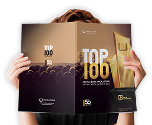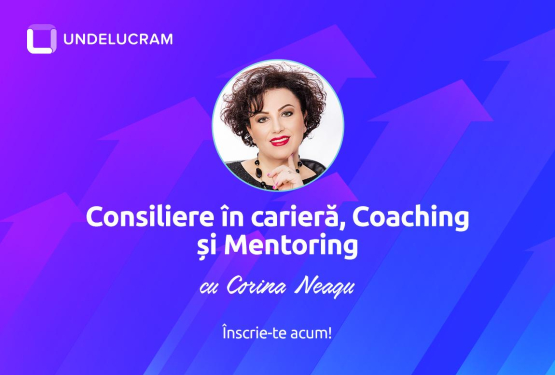Share
How to answer the most common 10 interview questions in 2025?

The job market has evolved significantly in recent years, and 2025 is no exception. Interviews are increasingly conducted online, requirements change rapidly, and candidates need to be better prepared than ever. Below, you’ll find a series of interview questions frequently encountered in hiring processes (both classic and newer), along with recommendations on how to address them intelligently and convincingly. These tips will help you handle any challenge successfully and complete your interview preparation properly:
The most common interview questions and suitable answers:
1. “Tell me about yourself”
Why this question is asked:
It’s the ideal way for the interviewer to “break the ice” and get to know you. Even though it may seem like a relaxed conversation, the manager wants to see how you structure your story and whether you know how to highlight your strengths (including relevant strong and weak points).
How to answer:
- Focus on your career and professional goals: give a brief context about where you studied or what relevant experiences you have, without going into unnecessary detail.
- Emphasize your key skills and achievements: end with a “pitch” about what you can bring to the company.
Example:
“I’ve been working in the [X] field for over 5 years, during which time I specialized in [key skills]. In my last role, I contributed to a 40% increase in sales through digital marketing strategies. I’m results-oriented, and going forward, I want to apply my analytical and team coordination skills in a company that values innovation.”
2. “How did you find out about this job?”
Why this question is asked:
The recruiter wants to find out if you’re genuinely interested in the company and if you have relevant connections (for example, a colleague who recommended you for the job).
How to answer:
- If you were recommended by someone at the company, mention it (this adds credibility).
- Highlight why the company appeals to you: its organizational culture, values, products, or projects it excels in.
Example:
“I heard about the position from a former colleague, who praised your work environment and growth opportunities. I’m already familiar with some of your projects in the sustainable technology field, and it seemed a natural step to apply, especially since I’m also passionate about innovation in this sector.”
3. “Walk me through your resume” / “Tell me about your resume”
Why this question is asked:
Employers want an overview of your experiences and studies. At the same time, they test your ability to synthesize essential information and provide a clear interview answer.
How to answer:
- Follow a chronological thread but highlight the moments that had the greatest impact on your professional development.
- The recommended structure: Education → Key experiences → Future objectives.
Example:
“I graduated with a degree in Communication, then pursued a master’s in Digital Marketing. In parallel, I worked as an intern in an agency, where I developed copywriting and project management skills. Later on, I coordinated a promotional campaign for a retail brand, yielding above-expectation results. Next, I’d like to contribute to global marketing strategies, exactly what I understand your company is focusing on.”
4. “What does your ideal work environment look like?”
Why this question is asked:
Employers want to assess how well you’d fit into their organizational culture: do you prefer a formal or a relaxed style, creative freedom or clear procedures?
How to answer:
- Explain what factors boost your productivity and do some research in advance about them (e.g., “I enjoy working in a dynamic environment where ideas are openly discussed”).
- Show you’re flexible and willing to adapt, but emphasize the aspects that matter most to you.
Example:
“I work best in a collaborative environment where ideas can be freely shared and where the team has clear objectives. I appreciate spaces that encourage creativity but also maintain a good degree of organization and planning.”
5. “How would you describe the best / most difficult boss you’ve had?”
Why this question is asked:
Recruiters want to anticipate what type of management suits you and how you relate to authority, especially when addressing questions of this nature.
How to answer:
- Be positive and avoid blaming or speaking negatively about former bosses.
- Mention what you learned from them, even if their style was difficult.
Example (best boss):
“The best boss I had was the one who gave me autonomy and encouraged my ideas. She supported me in decision-making, and we met weekly to track progress.”
Example (most difficult boss):
“I had an experience where my boss was very perfectionist and micromanaging, but that taught me to communicate more frequently and clarify expectations from the start.”
6. “What is your greatest professional achievement?”
Why this question is asked:
It’s the perfect opportunity to demonstrate you’re results-oriented and to show concrete data on where you excelled—a good example of answers involving measurable outcomes.
How to answer:
- Choose a measurable achievement that is relevant to the position in question.
- Explain the situation, your actions, and the outcome (possibly using the STAR structure: Situation–Task–Action–Result).
Example:
“At my former company, I implemented a new email marketing system that led to a 15% increase in conversion rates. I started by researching suitable platforms, then integrated the tool and trained the team. In the end, online sales increased significantly in just a few months.”
7. “What are you looking for in a new role?”
Why this question is asked:
To see if your expectations (regarding growth, specialization, autonomy) align with what the company can offer. Often, such interview questions determine if your values coincide with the company’s values.
How to answer:
- Be specific about growth opportunities, the types of projects, or the work environment.
- Avoid vague answers like “I want something new.”
Example:
“I want an environment where I can coordinate multiple international projects and apply Agile methodologies. I saw that you focus on innovation and continuous development, which fits perfectly with my career plan.”
8. “How do you handle conflicts at work?”
Why this question is asked:
The employer wants to see how diplomatic you are and how you manage to resolve tense situations without harming professional relationships. It’s one of those interview questions and answers focusing on communication skills.
How to answer:
- Provide a concrete example (using the STAR structure if you like).
- Emphasize that you’re open to dialogue and that you listen before reacting.
Example:
“I had a colleague who kept rejecting my ideas in meetings, which slowed the team’s progress. I spoke with him privately, asked for specific feedback, and found out he felt excluded from certain decisions. After we established a more transparent way of collaborating, we got along much better and finished the project on time.”
9. “What are your salary expectations?”
Why this question is asked:
It’s a delicate but inevitable point. Companies want to know if their budget aligns with your expectations.
How to answer:
- Research the salary range in the market for that position.
- You can offer a range (e.g., “between X and Y”), stating you’re open to negotiation.
Example:
“Based on my research about the current market and the experience I bring, I believe a package between 5,000 and 6,000 RON net/month is fair. However, I’m open to discussion, especially if there are additional benefits and growth opportunities.”
10. “Do you have any questions for us?”
Why this question is asked:
It usually comes at the end of any interview and is your chance to show genuine interest in the company. Having no questions might be interpreted as a lack of interest.
How to answer:
- Prepare in advance 2–3 questions about the organizational culture, future projects, or the company’s development plan.
- Avoid questions whose answers you could easily find on the official website (e.g., “What does your company do?”).
Sample questions:
- “What growth prospects do you foresee for this role in the next year?”
- “What are the main challenges the team is facing right now?”
- “Are there any plans for expansion into international markets or new products in the near future?”
Conclusions and a few figures for 2025
In the current context, more and more companies use digital formats for interview questions and emphasize transversal (soft) skills, flexibility, and the ability to learn quickly. The answers to the above questions will give you a significant advantage, as long as:
- You are authentic: Don’t give cliché answers and don’t try to be someone else.
- You do thorough research: About the company, the market, possible salaries, and trends.
- You focus on concrete examples: Show that you’re results-oriented and have real experience.
Here are a few figures that support the above ideas:
- 77% of recruiting managers surveyed in a LinkedIn study¹ stated that they prefer candidates who express their authentic personality and personal values, as it helps them better anticipate the candidate’s integration into the company culture.
- Over 60% of HR specialists (according to an Indeed report²) believe that a candidate who is honest and open about their strong and weak points or failures has a higher chance of being called for a second interview, compared to those who avoid such topics or respond with purely “idealized” answers.
- Almost 70% of candidates, according to a 2023 study published by LinkedIn Talent Solutions, who research in advance the organizational culture, field of activity, and company mission, end up receiving salary offers up to 10% higher.
If you keep these points in mind and approach every interview answer with sincerity and professionalism, you’ll have all the chances to get the desired job in 2025! Until then, we wish you “good luck” and leave you with this thought:
“Authenticity is the greatest competitive advantage you have in an interview. If you’re not yourself, then the interviewer can’t find out who you really are. And that reduces your chances of getting the offer.”
Carla Harris – Vice President at Morgan Stanley, motivational speaker
Comments
0 comments

Access your account and add your comment
Labour market
Subscribe to the Newsletter
Read articles of interest from Undelucram.ro contributors






